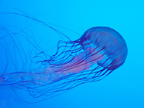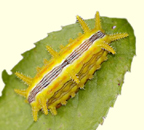|
||
Way DownstreamIn Chesapeake Bay, near the mouth of the Chester River, the Natural Resources Police were called to duty Sunday evening to find a boater who had “rolled off a vessel.” Sure enough, they pulled Albert Maden, 37, from the drink. We’re wondering if his untimely splash from the 40-foot cruiser had something to do with the boaters having just been to an establishment in Kent Island before heading toward Baltimore’s Inner Harbor … In Virginia, Gov. Tim Kaine took a step this week to limit the menhaden haul in Virginia’s portion of Chesapeake Bay — but it still sounds like a lot to us. Kaine said that Omega Protein, the Texas company that extracts oil from the Bay’s primary food fish, could harvest 109,000 metric tons per year, an amount that must yet be approved by the Virginia General Assembly. Federal officials were breathing down Virginia’s neck amid signs that Omega is seriously disrupting the Bay’s food chain … On the Eastern Shore, Republican Rep. Wayne Gilchrest will have plenty to say when members of Congress get together to tell what they did on their summer vacation. On his ecotourism adventures this week and next, he plans to: explore Tilghman Island water trails; paddle Tuckahoe Creek; hike the Tuckahoe Valley Trail; visit the C&D Canal Museum; canoe Nassawango Creek; bicycle around Blackwater National Wildlife Refuge and then paddle in the refuge. And that’s just part of it… In Spain, a jellyfish problem this summer makes our slimy sea nettles seem insignificant. In the eastern region of Catalonia alone, the Red Cross has treated more than 10,000 stings from jellyfish the size of dinner plates that have flourished because of warming seas and the decline of natural predators like dolphins and turtles … Our Creature Feature comes from Belgium, where they’ve got a plan to get rid of a plague of hairy, stinging caterpillars: love traps. Nothing else, even fire and pesticides, has worked in the town of Bree to get rid of the millions of marching caterpillars that emit a toxin that inflames the skin. So they’ve begun setting traps with a bait that the creepy little devils can’t resist: “We are using a female sex hormone that makes the males come in to the traps. They fall in and die,” city official Patrick Hermans told Reuters. |
||
|
|
||
|
© COPYRIGHT 2004 by New Bay Enterprises, Inc. All rights reserved.
|





